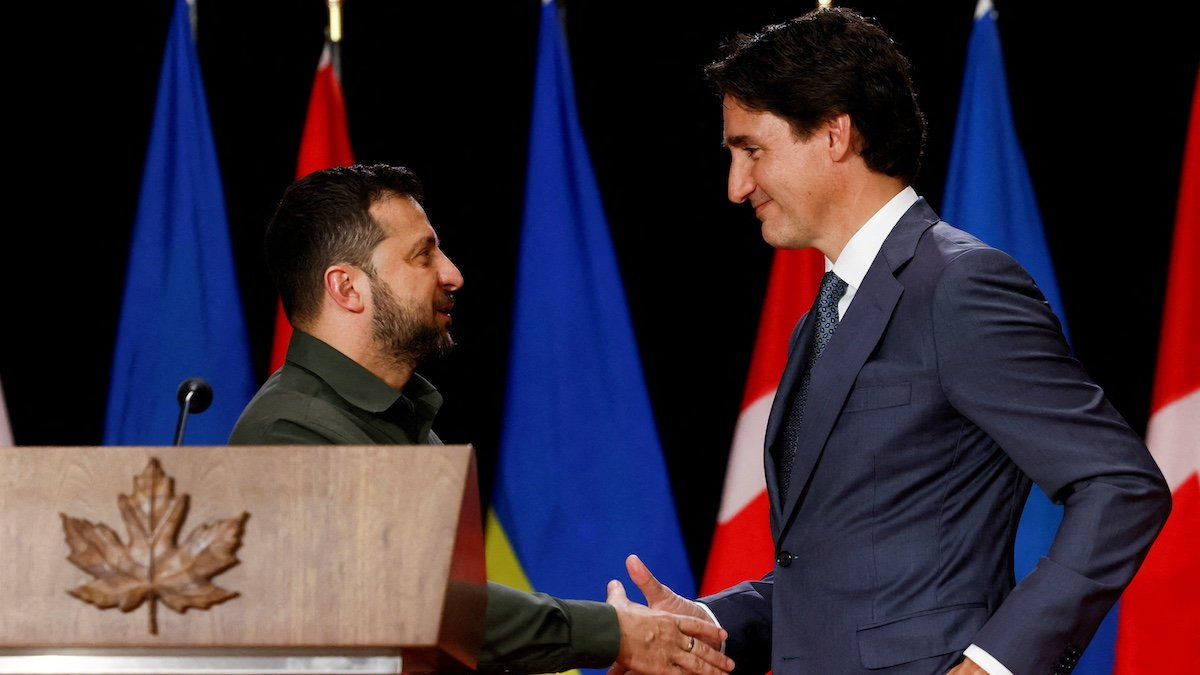Defense officials say Ottawa will inject CA$30 million into a push to buy ammunition, working with Czechia, aka the Czech Republic, to get artillery shells into the hands of Ukrainian soldiers. Allies are being urged to step up since US funding lapsed – and in the wake of Ukraine’s withdrawal from Avdiivka amid heavy losses.
At the Munich Security Conference, as attendees absorbed news of the death of Russian opposition leader Alexei Navalny, Denmark announced it would send all of its artillery to help the struggling Ukrainians and called on other countries to do more.
Republicans in the US Congress, under the influence of Donald Trump, meanwhile, have blocked aid, and rookie House Speaker Mike Johnsonhas failed to bring a Senate-passed $95-billion aid package for Ukraine and Israel up for a vote. Johnson is under threat from hardline Republicans who may try to oust him if he passes aid for Ukraine. But Democrats are considering taking steps to protect Johnson if he helps them get the package passed.
Unlike the US, Canada’s government has not wavered in its support for Ukraine, although the amounts of money are tiny in comparison. Defense Minister Bill Blair signed a memorandum of understanding with Czechia but has not yet revealed any details.
Canada is also facing intense pressure to boost its defense spending. NATO Secretary-General Jens Stoltenbergsaid Tuesday that Canada needs to set a date to increase defense spending to 2% of GDP, NATO’s guideline for members. Canada spent just 1.38% of GDP on defense in 2023. Meanwhile, only 11 of NATO’s 33 members met the 2% guideline last year, but several European countries have been increasing their spending sparked by fears of Russian aggression.
